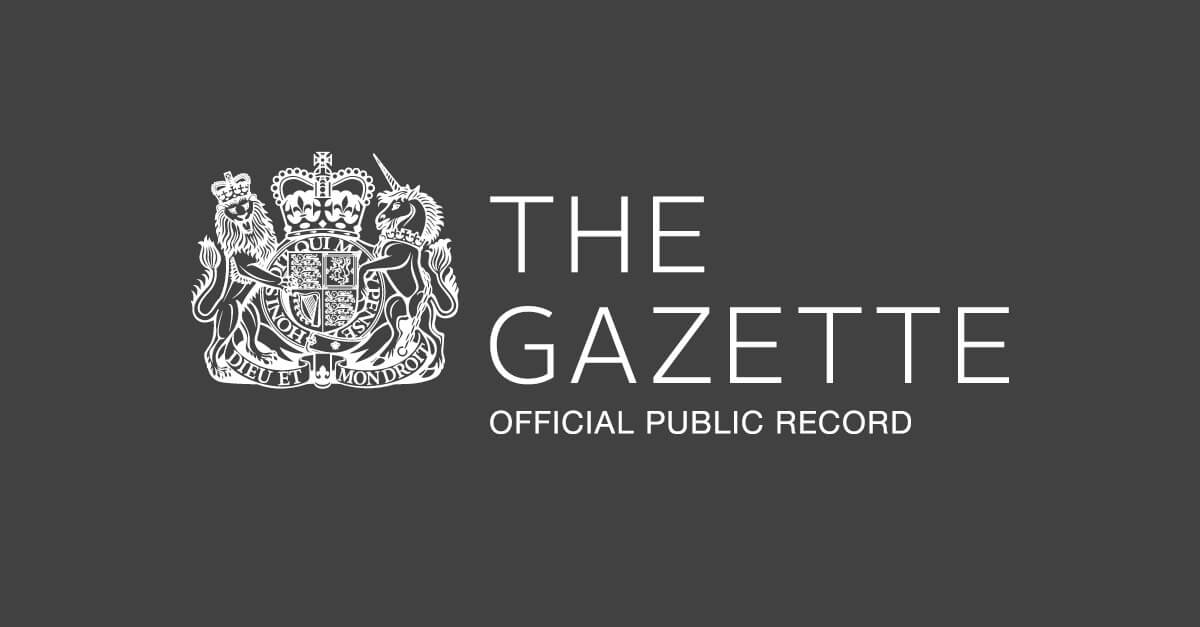A Detailed Evaluation of the Lawful Responsibilities Bordering Gazette Notice Magazine
The realm of gazette notification publication is a maze of legal details that demand careful attention. From the rigid lawful requirements regulating the web content of notifications to the ramifications of non-compliance, browsing this landscape is no trivial task. Comprehending the vital regulations that determines these obligations is vital for entities obliged to disseminate notifications via this authorities network. Nevertheless, the complexities extend past simple legal responsibilities, discussing best methods that can strengthen compliance efforts. As we untangle the layers of legal responsibilities bordering gazette notification magazine, a comprehensive analysis is necessary to grasp the gravity of these obligations and the ramifications of falling short to stick to them.
Legal Demands for Gazette Notices

Legal demands for Gazette notifications determine the specific criteria that need to be fulfilled for the magazine of main notifications in the Gazette. One key demand is the precise and full disclosure of details in the notice.
In addition, lawful needs frequently mandate the timely entry of notifications to the Gazette. Timeliness is important to make certain that the information reaches the intended recipients within a reasonable timeframe, enabling them to take required actions or make notified decisions quickly. Failure to comply with these timelines may lead to legal repercussions or render the notice inadequate.

Effects of Non-Compliance
Non-compliance with the laws established forth for Gazette notice magazine can result in legal repercussions, economic penalties, and reputational damages for the entity or specific liable for the publication. Failure to release notifications in the Gazette within the specified timeframe or inaccurately distributing details can lead to challenges in implementing rights, contractual responsibilities, or lawful proceedings. Furthermore, falling short to meet the legal commitments surrounding Gazette notice publication can result in the invalidation of the notice itself, making it legitimately ineffective.
Secret Legislation Governing Magazine
Offered the crucial implications of non-compliance with Gazette notification publication needs, comprehending the vital legislation governing this procedure is vital for guaranteeing legal adherence and maintaining openness. The main regulations regulating publication requirements in many territories is the Government Gazette Act (how to stop first gazette notice for compulsory strike-off). This Act describes the procedures and guidelines for publishing official notices, making sure that info reaches the general public in a timely and available way. Additionally, specific fields may have their very own policies concerning notice magazine, such as environmental agencies calling for specific news to be revealed for transparency and liability purposes. Recognizing these legal frameworks is crucial for companies and individuals accountable for releasing Gazette notices to prevent lawful consequences and maintain the principles of good administration. By complying with the crucial legislation governing magazine, entities can show their commitment to operating within the bounds of the regulation and supporting the democratic values of visibility and liability.
Entities Obligated to Publish Notifications
Entities responsible for the magazine of Gazette notifications play an important role in ensuring openness and legal conformity within the framework of governmental regulations. Authorities gazette offices offer as the main platforms for the magazine of legal notifications at the national, state, or local degrees, ensuring that such details is available to try here the public.
These entities are obligated to release notices immediately and accurately to abide with legal needs and support the concepts of transparency and liability in governance. Failing to publish needed notifications in a prompt manner can cause lawful consequences, undermining the integrity and effectiveness of the governing framework. It is necessary for these entities to fulfill their responsibilities faithfully to preserve public trust fund and ensure that stakeholders are notified of pertinent legal advancements.
Ideal Practices for Compliance
To make sure adherence to lawful obligations surrounding Gazette notification magazine, it is vital for companies to apply best methods for conformity that boost openness and accountability in distributing vital information to stakeholders. One of the fundamental finest methods try here is to establish clear internal processes and standards for Gazette notification publication. This consists of appointing responsibility to details individuals or departments, setting timelines for drafting and reviewing notices, and ensuring compliance with publication requirements.

Conclusion
To conclude, comprehending the lawful responsibilities bordering gazette notification publication is necessary for entities to follow essential regulations. Failing to publish notices in the gazette can have severe effects, consisting of lawful repercussions. It is critical for companies to stick to finest methods for compliance to ensure they satisfy their obligations under the law. Compliance with these needs is needed to maintain openness and copyright the regulation of legislation.